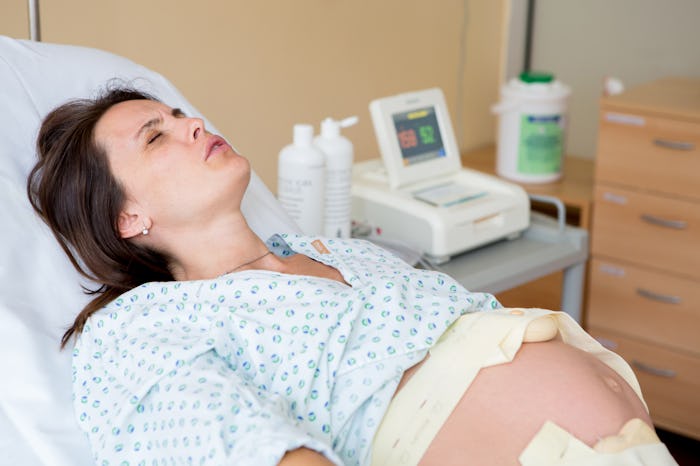Life

When It Comes To Home Births Vs. Hospital Births, Here's What Experts Want You To Know
If you're pregnant I'm going to assume you've spent a significant amount of time pondering labor and delivery. For something so "natural," it sure is complicated and full of tough decisions, including who will be around when you bring a human into the world, if you will consent to interventions, use pain medicine, and give birth in a hospital, a birthing center, or at home. As you weigh your options, you might wonder if it's better to have a hospital birth or a home birth. According to experts, there are a few things you should keep in mind as you make this very personal, and very important, choice.
According to the American Congress of Obstetricians and Gynecologists (ACOG), women who are considering a home birth should be informed of both the benefits and risks of delivering your baby at home. On the benefit side, people who plan home births experience fewer birth interventions, including bur certainly not limited to:inductions, epidurals, fetal monitoring, episiotomies, and C-sections. So if having your baby with minimal help from others is important to you, a home birth might just be the way to go.
Planned home births also come with heightened risks for your baby, though, including seizures, neurological conditions, and perinatal death. According to ACOG's website, some pregnant people shouldn't even consider having a home birth. For instance, home birth is not safe if you're pregnant with twins or order multiples, have a breech baby, or have had a previous C-section in order to deliver your baby safely.
The American College of Nurse-Midwives has a slightly different take on home birth, for what it's worth. They believe that every woman should be able to make an informed choice about where they give birth. They stress the importance of working with a health care provider to decide which location is right for you, based on your values, goals, and you and your baby's health and safety. To help improve outcomes, the college wants providers who attend births outside of hospitals to collaborate with providers at hospitals to ensure that women who have to transfer to the hospital can do so easily and safely.
According to the Mayo Clinic, many women who plan home births end up transferring to the hospital for monitoring or delivery, due to birth complications or their labor not progressing. The site recommends that people who want to plan a home birth select a trained professional to deliver their baby. However, in many states, finding a qualified provider to attend your home birth is nearly impossible. According to The Big Push for Midwives, a home birth advocacy organization, in 18 states and Washington, D.C., certified professional midwives — the type of provider who attends most home births — are unable to be licensed and risk criminal prosecution if they attend home births.
Barring complications and the laws in your state, the decision about whether to birth in a hospital or at home is a personal one. As for which one is better — that entirely depends on you and the unique aspects of your pregnancy. Just consult with professionals and experts and, above all else, remember the following: your body, your baby, your choice. If home birth is a safe option for you and your baby, and you'e comfortable bringing your baby into the world in your home and outside a hospital, the decision to do so is entirely up to you.